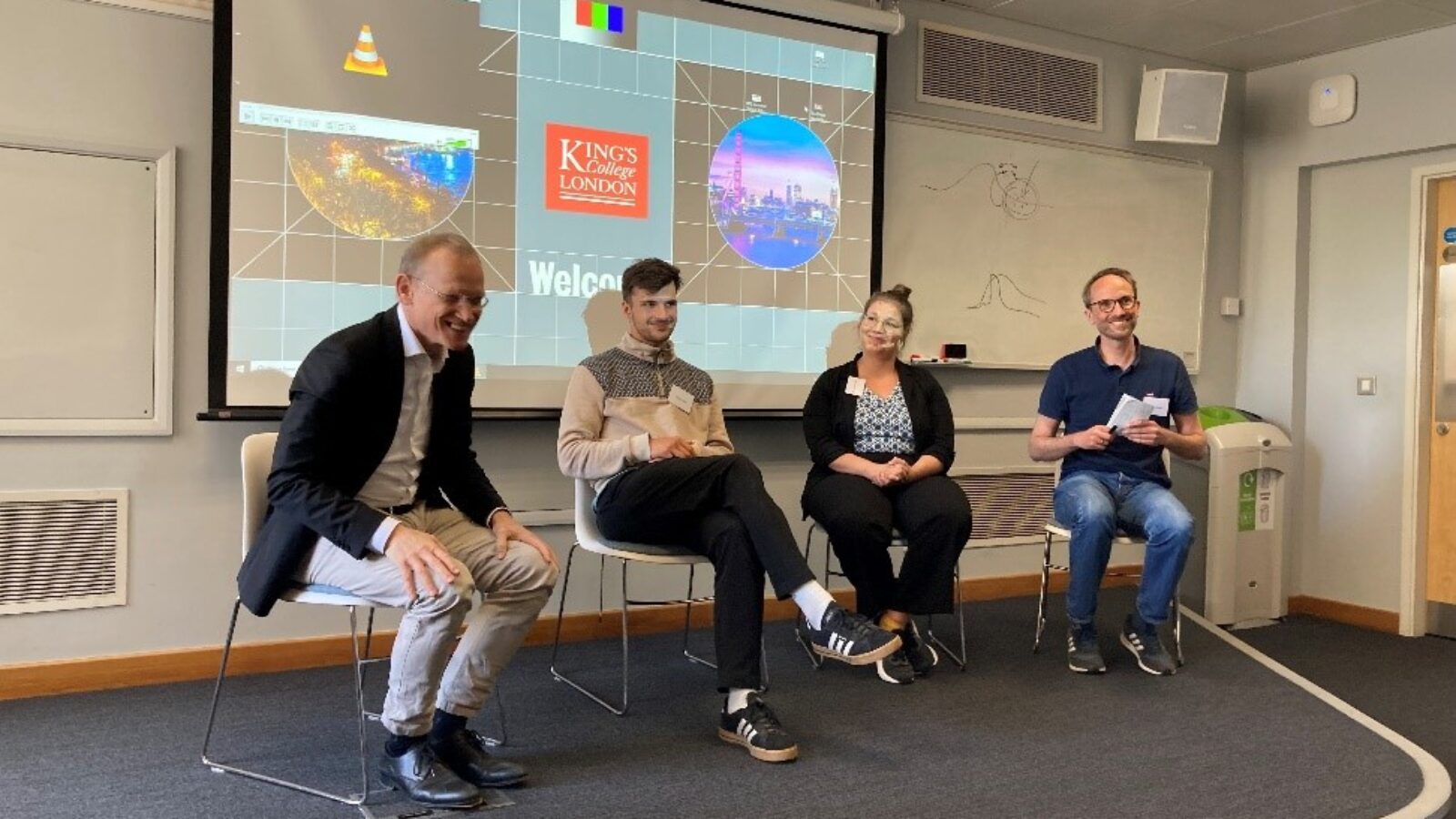This year’s Summer School of the International Research Training Group 2773 focused on “Trajectories of Affective Disorders – Challenges and Promising Approaches” and covered a wide spectrum of fundamental topics of affective disorders. Hosted by the Institute of Psychiatry, Psychology & Neuroscience in London, around 40 participants from TU Dresden and King’s College took part from 11 to 13 June 2024. Spokespersons Prof. Allan Young and Prof. Michael Bauer had the pleasure to welcome international guests such as Prof. Martin Preisig from Psychiatry Department, University Hospital of Lausanne, and Prof. Christoph Correll from the Charité in Berlin, who also helds a professorship at the Zucker School of Medicine in New York.
Their inspiring scientific talks addressed new mechanisms of action in psychopharmacological treatments and the clinical relevance of atypical depression. A series of “What you always wanted to know about…” gave an quick overview of relevant topics for psychiatrists: EEG, sleep analysis, and neurostimulation.
Participants also gained insights into two UK flagship projects: the Pears Maudsley Centre for Children and Young People is set to be the world-leading translational centre for child and adolescent mental health. Prof. Agyris Stringaris and Prof. Katya Rubia explained this unique collaboration that brings together clinical and academic excellence. The second flagship is the UK Biobank, presented by Dr. Alexandru Dregan. The biobank is a large-scale biomedical database and research resource which contains de-identified genetic, lifestyle and health information, as well as biological samples from half a million UK participants.
Moreover, the students benefited greatly from an insider’s perspective on publishing a paper, provided by Kenneth Kaufmann, the editor-in-chief of the British Journal of Psychiatry Open. Kaufmann shared his personal experiences with the submission and review process. And, most importantly, the students presented their research in pitch talks and poster presentations, gaining highly appreciative input from the senior researchers.
These three days of lectures, panel sessions and pitches provided an excellent opportunity for lively discussions of the latest research findings, and were a great benefit for all participants, both students and experienced researchers.
The complete programme can be found below.


